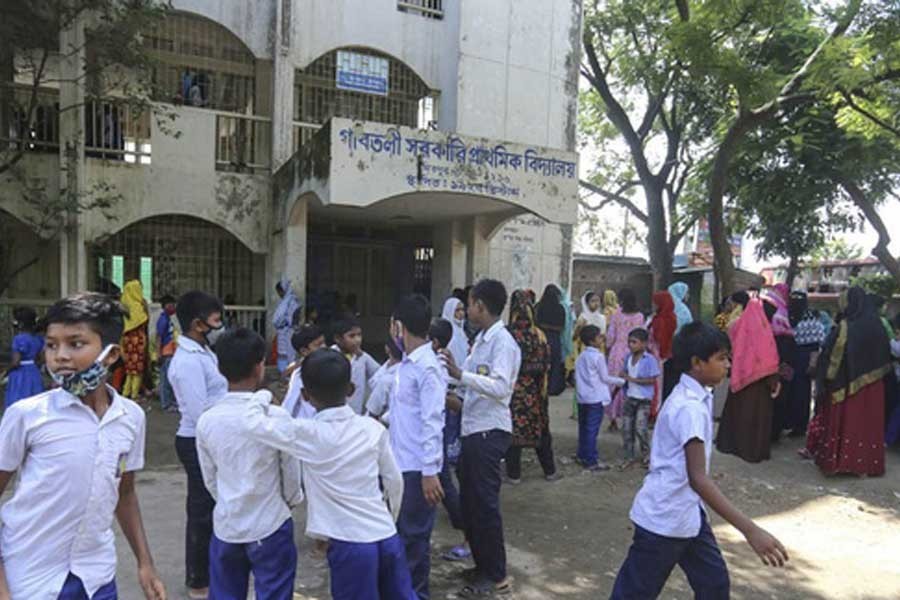
Published :
Updated :

To the relief of assiduous students and their parents, the country's secondary schools and colleges are poised to open sooner rather than later. The eagerly awaited announcement came from Education Minister Dipu Moni on January 24. As she said, classes at schools and colleges will resume, albeit on a limited scale, by the specified date. As per the schedule, it is only the students of grades 10 and 12, who will be required to attend classes daily. The students of other grades will have to attend one class a week at their schools and colleges. The educational institutions are reopening after nearly a year-long shutdown prompted by the Covid-19 pandemic. Earlier, the education minister spoke in parliament on the government decision to reopen schools and colleges upon assessing the prevailing situation, and holding consultation with the relevant committee on Covid-19 in the country.
In accordance with the government decision, the students belonging to 10 and 12 grades have to be back to their institutions for the sake of extensive preparations for their coming SSC and HSC exams. That the phase-wise holding of classes has been necessitated for averting the students' normal crowding at schools is understandable. With the maintenance of physical distance among students in reopened schools and colleges made a prime requisite, the smooth functioning of the institutions is expected to depend on it.
In order to ensure that the students and teachers remain free of the pandemic hazards, the authorities have made some health guidelines mandatory. Those comprise wearing of facemasks, maintenance of at least three feet physical distance, daily health check-up of students and teachers; and arrangement of sufficient safe water and sanitation facilities. The preventive steps sound heartening. But without stringently supervised and foolproof implementation, these pandemic-prevention guidelines may just remain confined to the rulebook. Their compliance coupled with a monitoring mechanism should be considered a prerequisite for a school or college to be allowed to remain open.
With educational institutions still remaining shut in many corona pandemic-ravaged countries, the initiative to reopen schools and colleges in Bangladesh deserves to be global news. On the country's part, it is time Bangladesh made an in-depth assessment of the deleterious impact the covid-19 pandemic had on the country's school and college-level education. It will be an understatement to call the fallout a massive one. In terms of academic losses and the extent of the students' trauma stemming from uncertainties, the pandemic's impact can be compared to the 9-month void in which the occupied nation had found itself in 1971. With the destabilising and deadly pandemic still flaring up after remissions elsewhere in the globe, Bangladesh ought to deal with its reopened academic activities with caution. Time is yet to arrive to resume the study-related functions in full swing. In the meantime, the education authorities may engage in counting the losses at the primary, secondary and higher secondary academic levels. Without wasting time, the policymakers in the education sector had better recast preferences and work plans suiting the post-pandemic times. In its efforts to achieve the 'developing nation' status, level of education plays a critical role. Bangladesh cannot miss out on this graduation.


 For all latest news, follow The Financial Express Google News channel.
For all latest news, follow The Financial Express Google News channel.